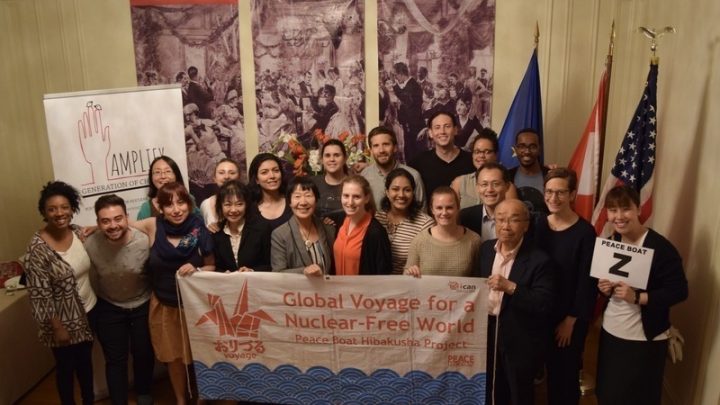Historic negotiations for “a legally binding instrument to prohibit nuclear weapons, leading towards their total elimination” are now taking place at the United Nations in New York. Civil society representatives from around the world are gathered there to urge all nations to work in good faith to achieve the strongest, most effective treaty possible.
Amongst the civil society present in New York include many Hibakusha, survivors of the atomic bombings of Hiroshima and Nagasaki. As the only people who have ever experienced the devastation of nuclear war, the voices of the Hibakusha carry a heavier weight than most on the topic of global nuclear proliferation. They are mentioned directly in the preamble of the revised treaty draft released earlier this week, which states that participating countries are “mindful of the unacceptable suffering of and harm caused to the victims of the use of nuclear weapons (Hibakusha) as well as of those affected by the testing of nuclear weapons.”
On June 16, representatives of the Hibakusha personally handed over a total of 2,963,889 signatures from the appeal to the president of the UN Conference, Costa Rican Ambassador Elayne Whyte.
The following day, a delegation of Hibakusha currently travelling around the world onboard Peace Boat flew to New York to attend the ban treaty negotiations, where they spoke at various events and reminded attendees of the significance and urgency of nuclear weapons abolition.
“The voices of the hibakusha and survivors of nuclear testing around the world have been absolutely crucial in this process … that is so powerful it makes the case as to why these weapons must be banned,” said Tilman Ruff, co-president of International Physicians for the Prevention of Nuclear War, as reported by Kyodo News.
It is expected that the treaty will be concluded in July 7.










